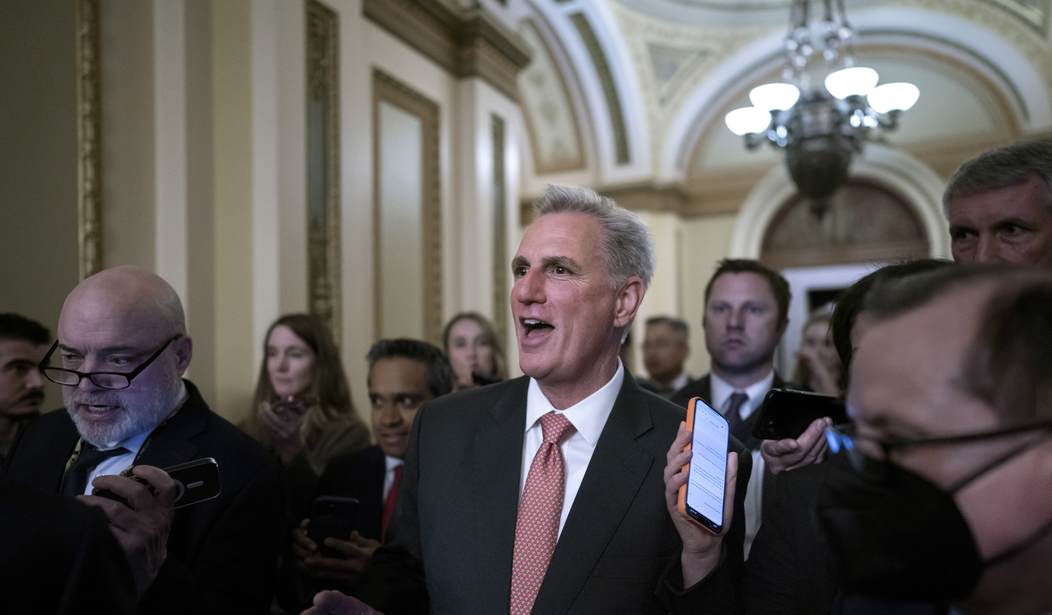People (almost always Republicans) have been threatening a massive rethinking of the taxation process in America for a long time. A number of changes have been considered, but we always wind up with the same progressive-scale tax code we’ve had for all of living memory with some tweaks to the rates being applied here and there. But now the newly seated House Majority will hold a vote on the Fair Tax Act. If somehow signed into law, it would abolish the Internal Revenue Service entirely and replace the existing tax structure with a national-consumption tax. And before you ask… yes. This was one of the concessions Kevin McCarthy made to become Speaker. (National Review)
House Republicans are set to vote on a bill that would abolish the Internal Revenue Service (IRS) and introduce a national-consumption tax to replace the existing federal income-tax scheme.
House Speaker Kevin McCarthy agreed to put the Fair Tax Act on the floor as one of a number of concessions he made to House Freedom Caucus members last week in a bid to secure the speakership. The bill was introduced by Representative Buddy Carter (R., Ga.) on Wednesday and has also received the support of Republican representatives Scott Perry of Pennsylvania, Bob Good of Virginia, and Ralph Norman of South Carolina.
“Cosponsoring this Georgia-made legislation was my first act as a Member of Congress and is, fittingly, the first bill I am introducing in the 118th Congress,” Representative Carter said in a press release.
Just as with the GOP’s previous move to slash the budget of the IRS and prevent its expansion, this bill has basically no chance of being passed (or even considered) in the Senate or being signed by Joe Biden. In fact, I would venture to say it has even less of a chance. I would give it fairly low odds of even passing in the House. No Democrat will vote for it and it’s possible that a significant number of Republicans will vote no also.
It’s not that we might not be better off with the IRS going away. The agency has more than its share of problems, to put it mildly. But if you’ll pardon my use of the word, the Fair Tax Act is among the most “radical” of all of the fixes to our system of taxation that’s been proposed in living memory. And it’s going to scare off a lot of members who might have considered it.
At the same time, this is the sort of proposal that hands a lot of ammunition to the Democrats going into the 2024 cycle. Some of them were already teeing up the proposal as soon as it was announced. A spokesperson for the OMB put out a statement saying that these measures would “allow the rich and multi-billion dollar corporations to skip out on their taxes while making life harder for ordinary, middle-class families that pay the taxes they owe.”
And if I can play Devil’s Advocate here for a moment, they sort of have a point. A consumption tax would drive up the prices people pay for everything while removing the taxman’s bite from their paychecks. And yes, the very wealthy tend to “consume” a lot more than the middle class, so they would wind up paying a bigger bite. But do they really consume that much more on a regular basis? People pay attention when the wealthiest people purchase a new mansion or a yacht, but they don’t do that every year. They might wind up paying considerably less than they do now at various stages of their careers.
In the end, I think this attempt to run the Fair Tax Act through is just showmanship that will put some GOP members in marginal districts more at risk. And if they can’t scrounge up enough of their own members to pass the bill in the House, it will just be a huge embarrassment. If the Republicans really want to make this change, they should have waited to see if they take back the Senate and the White House and then put the proposition to the American people.








Join the conversation as a VIP Member